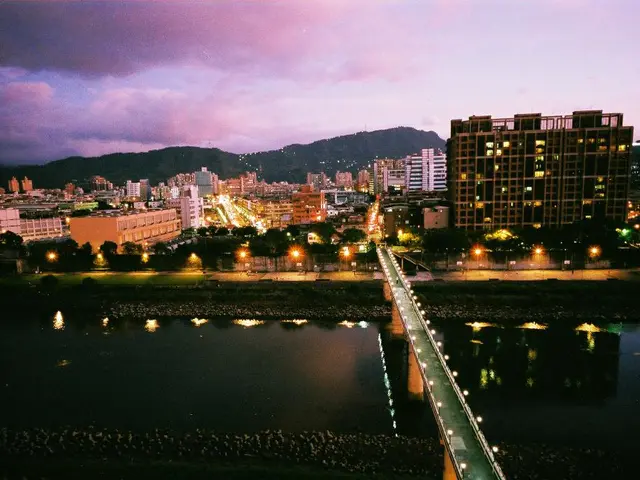escalating tensions between India and Pakistan leading to potential broader conflict; key details revealed
Unleashing the Reciprocal Chaos: The India-Pakistan Showdown Over Kashmir
After a series of provocative exchanges, India and Pakistan have once again found themselves on the brink of a devastating confrontation. This escalating standoff is the latest chapter in a long-running saga that began with a heinous terrorist attack in Kashmir, a flashpoint that has undeniably strained relations between the two nuclear-armed nations.
On Wednesday, Indian forces launched a preemptive military strike dubbed 'Operation Sindoor' on Pakistan and Pakistan-administered Kashmir. Indian officials claimed they targeted "terrorist infrastructure" belonging to militant groups such as Lashkar-e-Tayyiba and Jaish-e-Mohammed, with a focus on wiping out the latter – a move driven by their alleged involvement in the recent terrorist attack in Pahalgam that ravaged a scenic mountain spot, leaving 26 men, mostly Indian tourists, brutally murdered.
Pakistan's military quickly responded by shooting down five Indian Air Force jets and one drone, according to their claims. The downed jets reportedly included three Rafale fighter jets, a prized military asset that India had only recently procured from France. Pakistani Prime Minister Shehbaz Sharif went one step further by announcing that the country's air force had destroyed the Indian jets to "smithereens." However, India has yet to confirm these claims, leaving the world to question their validity.
As the dust settled, the death toll in Pakistan and Pakistan-administered Kashmir reached 31, with 57 injured, while India reported 12 civilian casualties due to cross-border shelling. The international community has since called for restraint, with voices of concern and pleas for de-escalation emanating from the United Nations, the United States, the United Arab Emirates, China, and Japan, among other nations.
The recent incidents serve as a stark reminder of the ongoing tension between India and Pakistan, a feud that harkens back to Partition and the bloody clashes that marked the emergence of the two independent nations in 1947. Back then, both nations claimed Kashmir in its entirety, leading to the first of three wars over the disputed region. The divide remains a tinderbox today, making it one of the most militarized regions in the world.
As analysts, diplomats, and the international community scrutinize the current situation, it's essential to consider potential future actions. Here's what we might expect:
- International Pressure: There could be increased international pressure on both countries to step back from the brink and pursue diplomatic dialogue to avert a full-blown war.
- Regional Implications: The conflict has the potential to cause broader instability within South Asia and even draw in other countries or organizations keen on maintaining regional stability.
- UN and International Mediation: With the enduring strategic importance of the region and the historical complexities of the Indo-Pakistani conflict, international organizations may play a crucial role in urging both nations to engage in diplomatic dialogue aimed at resolving the conflict peacefully.
Despite the unfolding drama, it's critical to remember that the people of both India and Pakistan are ultimately the ones who will suffer most if the standoff escalates even further. With so much at stake, it's the collective responsibility of the world community to play a constructive role in de-escalating tensions and fostering dialogue towards a lasting, peaceful resolution.
- The recent military strikes in Kashmir between India and Pakistan have been widely reported in general news, highlighted by eyewitness accounts of the conflicts.
- The escalating war-and-conflicts between India and Pakistan over Kashmir have resulted in downgraded diplomatic relations, with both nations refusing to confirm all claims made by their respective officials.
- The strikes in Kashmir have led to the loss of life on both sides, with the death toll confirmed to be over 40, including Indian and Pakistani forces and civilians.
- The ongoing political tensions in Kashmir can have far-reaching implications, potentially sparking strikes and further instability in the region, as well as drawing international attention for potential mediation and resolution efforts.






